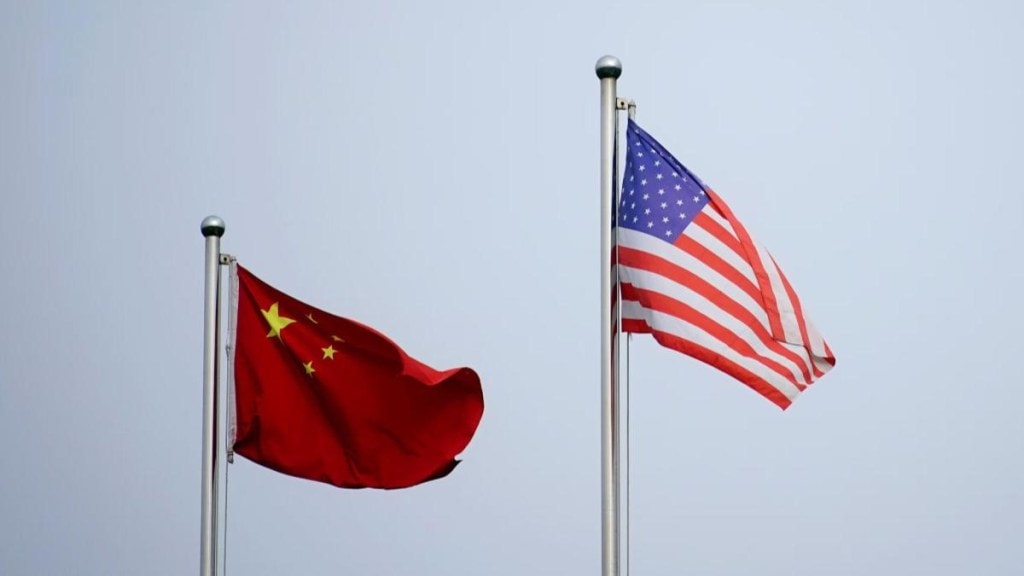China has become a major force in global drug trafficking, and its actions are increasingly attracting the attention of world leaders, including President-elect Donald Trump and entrepreneur Elon Musk. At the heart of this concern is China’s position as the world’s leading exporter of fentanyl, a synthetic opioid that is 50 times more potent than heroin. Known as “China White,” this deadly drug is a key contributor to the opioid crisis in the United States and is fuelling a broader international drug epidemic.
In response to the growing threat posed by Chinese drug exports, Trump has made it clear that he plans to take a hardline stance on trade. On January 20, according to reports, he is expected to sign an executive order imposing a 10 percent tariff on all Chinese goods entering the US., seeking to hold China accountable for its role in the fentanyl trade.
Trump’s decision to impose tariffs is part of his broader “America First” approach, which aims to prioritize US interests in economic and foreign policy matters. In a social media post, Trump stated that his administration had raised concerns with China over the massive quantities of fentanyl flowing into the US. He noted that despite China’s promises to impose harsh penalties—such as the death penalty—for drug traffickers, these measures have not been effectively carried out. “Drugs are pouring into the country mostly through Mexico at levels never seen before,” Trump said. Until China takes more meaningful action to stop this flow, he has indicated that the 10 percent tariff will remain in place. He also suggested that these tariffs could be lifted if Mexico and Canada take stronger steps to curb the illegal trafficking of fentanyl.
Fentanyl: The Lethal Product of China’s Drug Trade
Fentanyl is now one of the deadliest drugs in the world, with just two milligrams—about the size of a few grains of salt—being enough to kill an individual. Despite China’s strict internal drug regulations, the country remains a hub for illicit drug production. Reports suggest there are more than 40,000 legal and illegal manufacturers in China, many of which operate under the guise of pharmaceutical companies. In cities like Beijing, Shanghai, Chengdu, and Wuhan, large-scale fentanyl operations are carried out, often through online platforms, making it easier to smuggle and distribute the drug worldwide.
China itself doesn’t directly export these drugs, but rather relies on smuggling routes that pass through neighbouring countries, especially Myanmar. The Shan and Kachin provinces in Myanmar, which border China, have become key locations for the production and trafficking of fentanyl. Rebel groups in these regions control much of the drug trade, with drugs ultimately being sent through Southeast Asia and beyond. A large portion of these shipments end up in the United States and Mexico, contributing to the growing narcotics crisis in North America.
The US government has raised serious concerns about China’s role in the global drug trade. The US Department of Justice and the Drug Enforcement Administration (DEA) have identified China as the primary source of precursor chemicals used in the production of methamphetamine. According to the DEA, China is responsible for providing 80 percent of the chemicals used to produce meth in Mexico. This cross-border trafficking is a significant factor in the escalating opioid and methamphetamine crises in the US.
Elon Musk’s Concerns and the Broader Implications
While President Trump has taken a direct approach to addressing China’s drug trade, other influential figures, such as Elon Musk, have also voiced concerns over the far-reaching impact of China’s fentanyl exports. Known for his focus on innovation and global issues, Musk has acknowledged the dangers posed by China’s role in the opioid epidemic. Although Musk’s primary focus is advancing technologies like electric vehicles and space exploration, he has publicly expressed his worry about the implications of China’s growing involvement in the drug trade.
China’s involvement in drug trafficking extends beyond the US. In addition to Mexico, fentanyl is also being smuggled into Europe, Australia, and even the Maldives. The Maldives, a nation that has recently deepened its ties with China, has become a key “trans-shipment hub” for Chinese fentanyl. From there, the drugs are sent to various global markets, including the US., Europe, and Australia. Chinese drug cartels have also been linked to Italian drug trafficking organizations, where money laundering schemes involving Chinese shadow banks are reportedly being used to fund the drug trade. These international networks illustrate the widespread nature of China’s drug trafficking operations and highlight the challenges in combating such a complex issue.
A Global Challenge
China’s central role in the global drug trade, particularly its production and export of fentanyl, represents a significant challenge for governments worldwide. As fentanyl continues to be a leading cause of overdose deaths in the United States, there is mounting pressure on both the Biden administration and international actors like President Trump to take stronger action against the flow of illegal narcotics. Trump’s decision to impose tariffs on Chinese goods is one example of how the US plans to hold China accountable, but it also underscores the need for broader international cooperation to combat drug trafficking.

